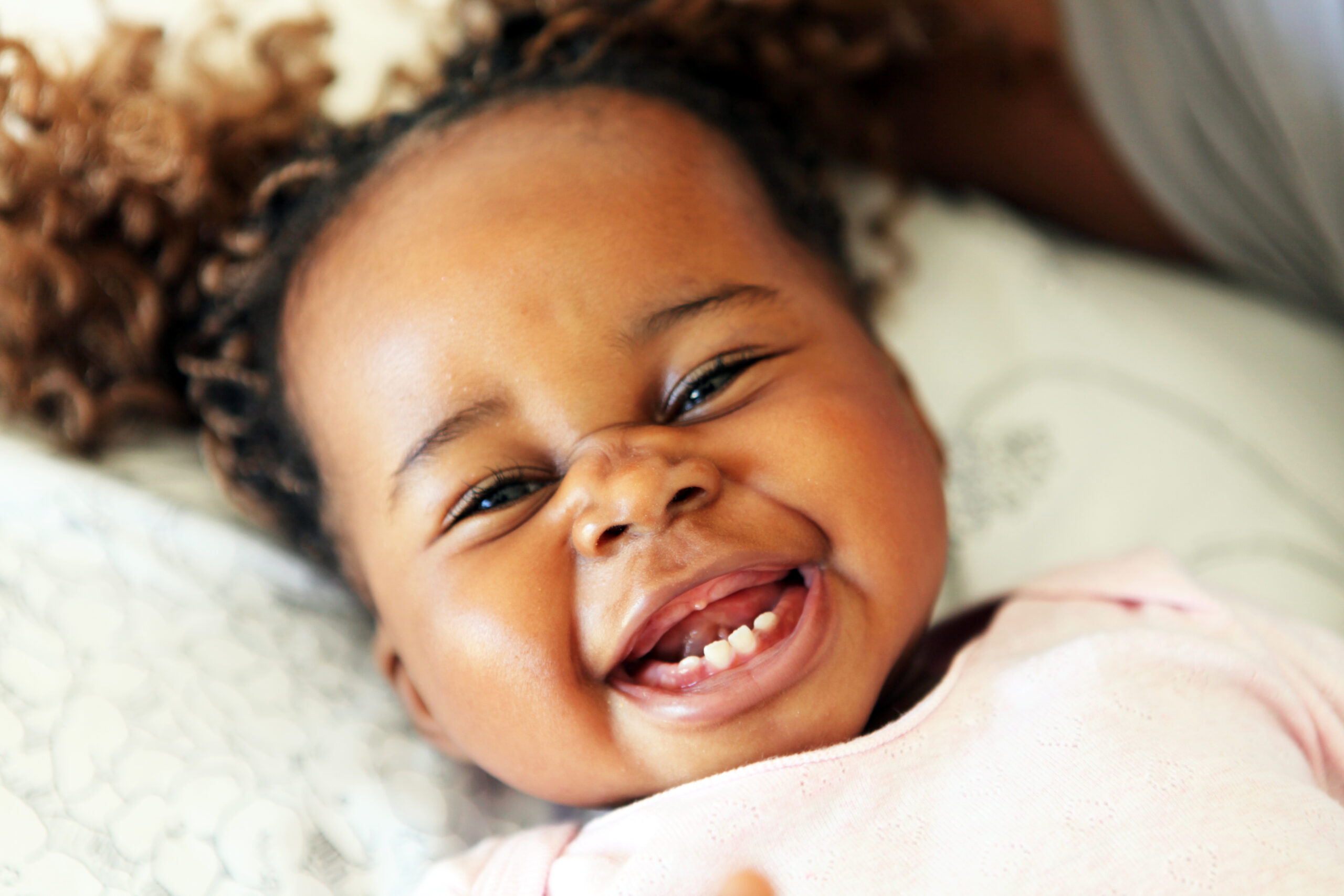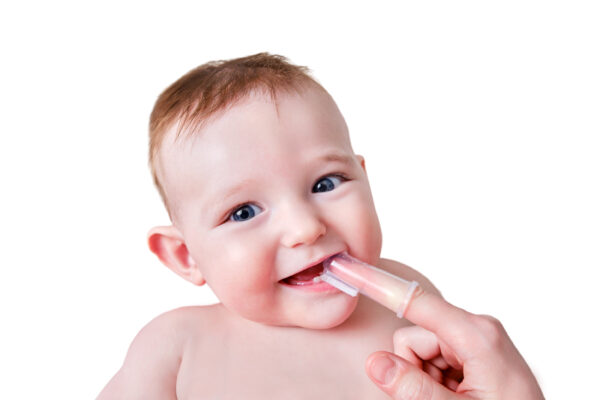 A child’s first chompers are an exciting milestone for parents and babies alike.
A child’s first chompers are an exciting milestone for parents and babies alike.
But even before those pearly whites pop through — on average, the first baby teeth come in between 4 and 7 months of age — it’s important to establish good dental health.
“It’s vital to take care of your baby’s teeth now to establish the habits that will lead her toward a lifetime of good dental health,” said Jeffrey Berlin, DMD, a pediatric dentist at Akron Children’s Celeste Myers Dental Clinic. “Even babies can develop tooth decay if good habits aren’t practiced.”
To keep your baby’s teeth healthy and strong — and that adorable grin wide and bright — Dr. Berlin answers your top 5 questions about good dental hygiene and brushing those first baby teeth.
When should I start my baby’s dental care?
Good dental care begins before your baby’s first tooth appears. Run a clean, damp washcloth over the gums daily to clear away harmful bacteria.
“Wiping and rinsing the mouth out can help keep harmful bacteria under control,” said Dr. Berlin. “It also gets the baby accustomed to an object in his mouth and in the habit of ‘brushing’ his teeth every morning and evening.”
When should my baby start using fluoride toothpaste?
You should use fluoride toothpaste as soon as your baby’s teeth pop through. Before the age of 3, dispense fluoride toothpaste about the size of a rice grain onto the toothbrush. Then, until about age 6, use a pea-sized amount.
“This way, babies get the benefit of using fluoride toothpaste, but the amount is age appropriate in case of ingestion,” said Dr. Berlin. “Too much fluoride can cause tooth discoloration.”
An age-appropriate soft toothbrush is best for your baby’s delicate gums. If the brush is too big, it’ll be difficult to maneuver in your baby’s small mouth.

The toothbrush should be the last thing in your baby’s mouth before bedtime. When sugars from milk or juice remain on baby’s teeth for hours, it can lead to cavities.
How often should I brush my baby’s teeth?
Just like adults, babies’ teeth should be brushed twice daily. The most critical time is before bed. The toothbrush should be the last thing in your baby’s mouth before bedtime.
It’s no surprise sugar is the culprit for cavities, but you may not realize its harsh effects are based on quantity and frequency.
For example, while surgery drinks are not healthy for teeth, it’s far better for a child to have a juice box at lunch and finish it than to carry it around all day and sip on it slowly. When the sugars from juice or milk remain on a baby’s teeth for hours, they can eat away at the enamel and lead to cavities.
“That’s why sleeping with a bottle at night is detrimental to baby’s teeth,” said Dr. Berlin. “It’s 10 hours’ worth of exposing his teeth to sugar. By the time that child is 2, he can have severe tooth decay.”
Do I really need to floss my baby’s teeth?
Once your baby’s teeth touch, you should begin flossing in between them. Sometimes the front teeth never touch and that’s a good thing. That means there’s plenty of room for the permanent teeth. However, later on your child’s molars most likely will have contact, so it’s a good idea to floss in between them at that time.
When should I schedule my baby’s first dental exam?
The American Academy of Pediatric Dentistry recommends children have their first dental visit by 12 months of age. At this first visit, the dentist will explain proper brushing and flossing techniques and do a modified exam while your baby sits on your lap.
“The whole concept of that first visit is to establish a dental home and a strong relationship with the dental team,” said Dr. Berlin. “Also, if we do see a problem arising, we can educate the family and intercept it at these early visits. Many dental problems are preventable with education and good practices.”
To get more of your questions answered, schedule an appointment at Akron Children’s Celeste Myers Dental Clinic by calling 330-543-0070.










